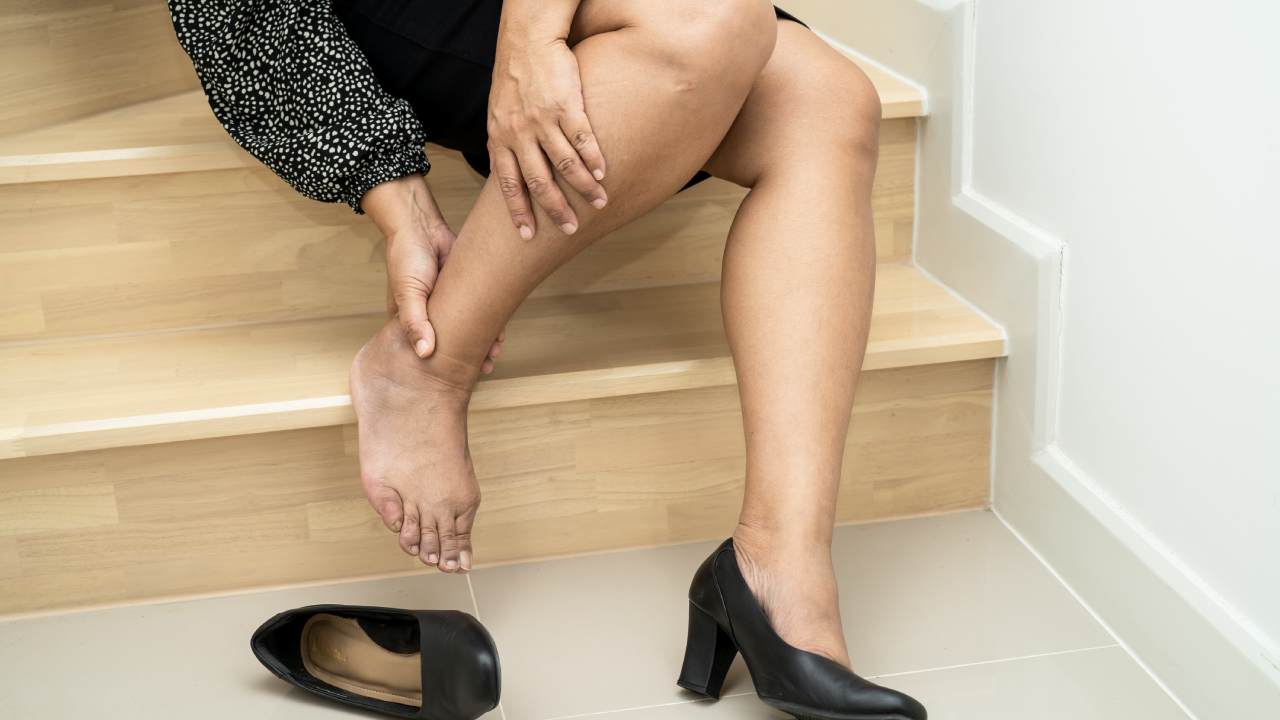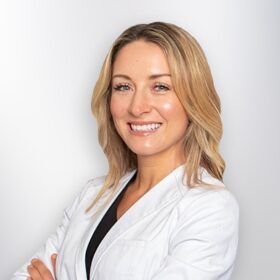Leg heaviness is a common complaint, yet many people are unaware that it can be an early sign of more serious underlying conditions, such as venous insufficiency or varicose veins. If you’re experiencing this, it’s essential to seek a professional evaluation. At Vein Treatment Clinic, our board-certified vein doctors specialize in diagnosing and treating the root causes of heavy legs using minimally invasive treatments that are often covered by insurance.
Possible Reasons Your Legs Feel Heavy
Venous Insufficiency
Venous insufficiency occurs when the valves in your veins malfunction, causing blood to pool in your legs instead of flowing back to your heart. This condition is a leading cause of leg heaviness, particularly when standing for extended periods. Over time, the increased pressure in your veins can lead to varicose veins, spider veins, and other complications.
Varicose Veins
Varicose veins are enlarged, twisted veins that can be seen just under the surface of the skin. They are not just a cosmetic concern; they often indicate poor blood circulation and can lead to symptoms like leg heaviness, pain, and swelling. If you notice bulging veins on your legs along with a sensation of heaviness, you need prompt varicose vein treatment.
Prolonged Standing or Sitting
Extended periods of standing or sitting can also contribute to leg heaviness. When you’re stationary for too long, your veins have to work harder to pump blood back to your heart. This can cause blood to pool in your lower legs, leading to that heavy, tired feeling.
Overexertion or Exercise
Strenuous activities, such as high-intensity workouts or standing on your feet all day, can lead to muscle fatigue, resulting in a feeling of heaviness in your legs. While this is generally temporary, persistent heaviness should not be ignored as it could signal an underlying vascular issue.
Obesity
Carrying extra weight puts additional pressure on your veins, making it harder for blood to circulate effectively. Obesity is a risk factor for developing venous insufficiency and varicose veins, both of which can cause leg heaviness.
Pregnancy
Pregnancy increases the volume of blood in the body, which can place extra pressure on your veins, especially in your legs. This, combined with hormonal changes, can lead to venous insufficiency and varicose veins, making your legs feel heavy.
Signs and Symptoms Indicating Your Heavy Legs Are Caused by Vein Disease
Visible Varicose or Spider Veins
If you notice bulging varicose veins or small, web-like spider veins on legs, this is a clear indication that your leg heaviness may be linked to vein disease. Varicose veins often accompany symptoms like pain, swelling, and a heavy sensation in the legs.
Swelling in the Lower Legs and Ankles
Swelling in your lower legs and ankles, particularly at the end of the day, is a common symptom of venous insufficiency. This swelling, known as edema, occurs when blood pools in your legs, causing fluid to leak into the surrounding tissues.
Pain or Aching in the Legs
Persistent pain or aching in your legs, especially when standing or sitting for long periods, could be a sign of vein disease. The pain is often described as a dull ache or a feeling of leg heaviness that worsens as the day progresses.
Skin Changes or Discoloration
Venous insufficiency can cause changes in the skin around your ankles and lower legs. You may notice areas of discoloration, dryness, or even the development of ulcers. These symptoms indicate advanced vein disease and should be addressed promptly to prevent complications.
Restless Legs Syndrome
Restless Legs Syndrome (RLS) is another potential sign of venous insufficiency. If you feel an uncontrollable urge to move your legs, particularly at night, or experience a crawling sensation, it may be related to underlying vein problems contributing to your leg heaviness.
Possible Consequences of Untreated Varicose Veins
Chronic Pain and Discomfort
If left untreated, varicose veins can cause chronic pain and discomfort. The pressure from pooled blood in your veins can lead to a constant aching or throbbing sensation in your legs, significantly impacting your quality of life.
Skin Ulcers
Advanced venous insufficiency can result in the formation of skin ulcers, particularly around the ankles. These are often difficult to heal and can lead to severe infections if not treated promptly. The development of ulcers is a serious complication and requires immediate medical attention.
Deep Vein Thrombosis (DVT)
One of the most severe risks of varicose veins is the potential for developing deep vein thrombosis (DVT), a condition where blood clots form in the deep veins of the legs. DVT can be life-threatening if a clot dislodges and travels to the lungs, causing a pulmonary embolism.
Reduced Mobility and Lifestyle Impact
The ongoing pain, discomfort, and swelling associated with untreated varicose veins can reduce your mobility. You may find it challenging to engage in physical activities or even stand for extended periods, which can lead to a sedentary lifestyle and associated health issues.
How We Diagnose and Treat the Root Cause of Leg Heaviness
At Vein Treatment Clinic, we take a comprehensive approach to diagnosing and treating leg heaviness. Our vein doctors begin with a detailed consultation and a thorough examination, often including a duplex ultrasound to assess blood flow in your veins. This non-invasive test allows us to pinpoint the exact cause of your symptoms and tailor a treatment plan for you.
Once we’ve identified the underlying issue, we offer a range of minimally invasive treatments to address the root cause of your leg heaviness. These treatments include:
- Sclerotherapy: During sclerotherapy, a popular spider vein treatment, a solution is injected into the affected veins, causing them to collapse and eventually fade away.
- Endovenous Laser Ablation (EVLA): EVLA is an effective treatment for larger varicose veins. A laser fiber is inserted into the vein, delivering heat to close off the vein and reroute blood flow to healthier veins. This procedure is performed under local anesthesia.
- Radiofrequency Ablation (RFA): Similar to EVLA, RFA uses radiofrequency energy to heat and close off problematic veins. This minimally invasive treatment is also typically covered by insurance when deemed medically necessary.
- VenaSeal: VenaSeal is a cutting-edge treatment that uses a medical adhesive to seal off varicose veins. This treatment is particularly appealing because it does not require heat or tumescent anesthesia, resulting in minimal discomfort.
- Ambulatory Phlebectomy: For large varicose veins close to the skin’s surface, ambulatory phlebectomy may be recommended. This procedure involves making tiny incisions to remove the problematic veins. It’s a straightforward procedure with minimal downtime.
Most of our treatments are covered by medical insurance when deemed medically necessary, allowing you to address your symptoms without financial burden. Visit your nearest vein clinic in New York, Long Island, California, Maryland, or New Jersey to learn more about our treatments and how we can help you regain comfort and mobility.
If your legs feel heavy, it’s crucial not to ignore the symptom. While it might be tempting to attribute it to fatigue or overexertion, persistent leg heaviness could be a sign of vein disease, such as venous insufficiency or varicose veins. Seeking a professional evaluation at Vein Treatment Clinic can help diagnose the root cause of your symptoms and provide you with personalized treatment options. Contact us to schedule a consultation today.









